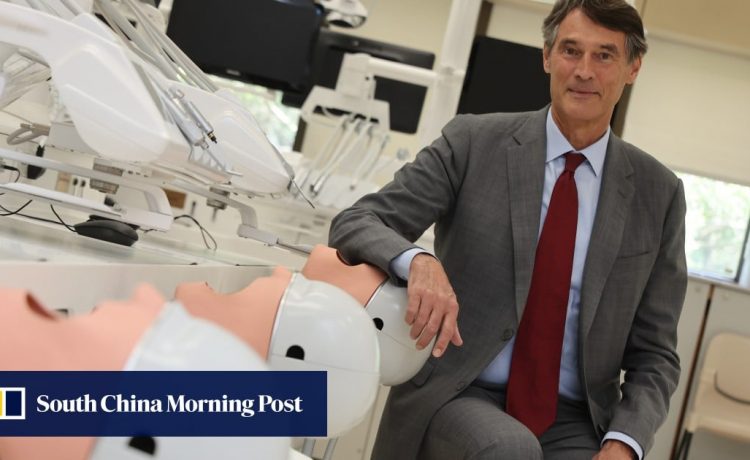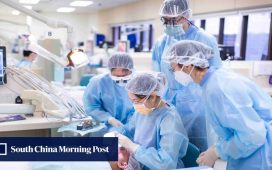Officials said the proposed change was to address concerns raised by the Dental Council of Hong Kong, which flagged “structural problems” with clinical training in HKU’s bachelor of dental surgery programme, according to accreditation reports issued in 2014, 2019 and 2023.
“It’s just very sad to see that the negative publicity is tarnishing the reputation of an institution that has clearly become world renowned,” Flemmig said on Friday.
The council accused some students of having “severely inadequate” clinical experience and “zero experience” in certain dental procedures.
Flemmig said the council in 2019 imposed quantitative requirements on dental graduates before they were qualified to practise in the city. Those requirements included treating at least 50 patients of five different types, ranging from the simplest ones to those requiring surgery.
He said students were also required to perform minimum quantities for 20 types of dental procedures, such as doing silver fillings for tooth cavities.
But he questioned the requirements set by the council, saying they were not backed by evidence and not adopted by most advanced dental education systems. Some of the required procedures were also no longer the most preferred options by dentists.
“When it comes to determining [dental graduates’] competencies, you’ve got to use parameters, academically, that really reflect quality, and not just use some arbitrary quantity that nobody can prove that it reflects quality,” he said.
“There is no evidence, not provided by the Dental Council, nor that we can find it in the literature, that the quantitative requirement demonstrates clinical competence.”

The German professor said while he was trained with quantitative requirements 40 years ago, many advanced countries and regions including the United States, Britain, Australia, New Zealand and most of Europe already did not have such requirements.
Flemmig said the faculty’s teaching hospital was closed for a few months during the pandemic, which lasted from 2020 to 2023, and the facility could only maintain one-third of capacity for more than a year. That disrupted the clinical teaching and made it difficult for students to meet the council’s requirements on a minimum number of treated patients.
“You’re taking three years that were severely affected by Covid and then do the accreditation,” Flemmig said. “You use those classes to then conclude that education is insufficient, as if Covid never happened, as if Covid did not affect the education.”
But he insisted that all students who graduated in 2023 managed to meet the council’s requirements, contradicting comments by council chairman Dr Lee Kin-man in May.
Flemmig said the faculty used to adopt competency-based learning, in which students were assessed in a clinical setting to determine if certain skills were achieved regardless of the time spent beforehand.
He said overseas external examiners invited by HKU to review the dental programme were surprised when they learned about the quantitative requirements on students.
“They threw their hands up in the air and said ‘focus on quality, not quantity’,” Flemmig said, adding that the experts were from top institutions such as University of Michigan-Ann Arbor in the US and Karolinska Institutet in Sweden.
The dental faculty had a top spot in an international ranking from 2016 to 2018 and hovered between second and third from 2021 to 2024.
The number of first-year admissions in the faculty has been increasing in the past few years, with the most recent at 90 in 2022-23.
HKU has been largely quiet over the recent controversies and only gave a statement in May. Flemmig explained that it was because the university did not want to interfere with the legislative process of the Dentist Registration Amendment Bill.
He said the university welcomed the proposal on internships. While planning was still in “very early stage”, the internship would be positioned to train a level of competency that was between a bachelor’s graduate and a specialist training in a master’s programme, Flemmig said.
He said he was surprised to see the current proposal stated that those interns could work independently, despite criticism of them lacking clinical experience.
As Flemmig wrapped up his work after reaching the retirement age of 65 and passed the baton to acting dean of dentistry Professor Jin Lijian, who was appointed a day before his term started on July 1, he said he would remain in Hong Kong and serve as an emeritus professor with the faculty.
“When I first came to Hong Kong I was told there’s never a dull day in Hong Kong,” he said. “And it is true.”







